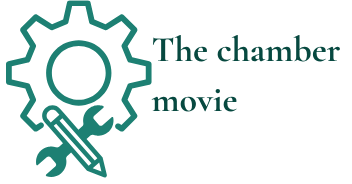Table of Contents
ToggleIn a world where job titles change faster than the latest TikTok dance craze, career development coaching has become the secret sauce for success. It’s like having a GPS for your professional journey—minus the annoying voice telling you to make a U-turn. Whether someone’s climbing the corporate ladder or contemplating a leap into the freelance abyss, a good coach can help navigate the twists and turns.
Understanding Career Development Coaching
Career development coaching plays a crucial role in helping individuals navigate their professional paths. It provides guidance and support tailored to each person’s goals.
Definition and Importance
Career development coaching focuses on personal growth and lifelong learning. This type of coaching encourages individuals to set clear objectives, whether advancing in corporate roles or exploring freelance careers. Engaging with a coach leads to enhanced self-awareness and offers strategies to overcome challenges. Coaches help clients identify strengths and areas for improvement, enabling them to create actionable plans. The importance of this coaching lies in its ability to help individuals achieve career satisfaction and fulfillment.
Key Components of Coaching
Goal setting forms the foundation of effective coaching. A coach works with clients to define specific, measurable, achievable, relevant, and time-bound (SMART) goals. Continuous feedback ensures that individuals stay on track and can adapt their strategies. Accountability provides structure, motivating clients to follow through on their commitments. Skill development enhances essential competencies through targeted training and resources. Lastly, personal branding plays a significant role, as a coach aids individuals in crafting a strong professional identity that aligns with their career aspirations.
Benefits of Career Development Coaching

Career development coaching provides numerous advantages that drive professional success and personal fulfillment.
Personal Growth and Self-Awareness
Personal development is a significant benefit of career coaching. Clients enhance their self-awareness through targeted discussions. Identification of strengths, weaknesses, and values leads to more informed decisions. Many individuals develop a clearer understanding of their career aspirations, which fosters confidence. Engaging in reflective exercises allows clients to explore their motivations deeply. Coaches often provide feedback that highlights areas for improvement, ensuring continuous growth. Such self-awareness empowers individuals to align their career paths with their true interests, enhancing overall satisfaction.
Enhanced Career Opportunities
Career coaching opens doors to new opportunities. Individuals often gain insights into industry trends and job market demands. With tailored strategies from their coaches, clients become more competitive candidates. Networking becomes more effective, as coaches help clients build connections within their chosen fields. Confidence often increases, making job seekers more persuasive in interviews. Additionally, many clients discover new career paths aligned with their skills and passions. Leveraging a coach’s expertise can lead to better job placements and career advancements.
Choosing the Right Career Development Coach
Selecting a suitable career development coach involves careful consideration of specific criteria. Individuals benefit from understanding the coach’s background and approach.
Qualifications and Experience
A coach’s qualifications and experience significantly influence their effectiveness. Look for certifications in coaching from recognized organizations such as the International Coach Federation (ICF). Experience in career development, human resources, or related fields enhances a coach’s ability to provide relevant insights. Consider coaches who have a proven track record of successful client outcomes. Research testimonials and case studies, as these often showcase the coach’s impact on clients’ professional journeys. A well-rounded coach brings both educational credentials and industry experience to the table, ensuring a comprehensive understanding of market dynamics.
Coaching Styles and Methods
Different coaching styles and methods suit varying client needs. Some coaches focus on a directive approach, providing structured guidance while others adopt a more facilitative style, encouraging self-discovery. Evaluate whether the coach employs techniques such as motivational interviewing, cognitive behavioral strategies, or holistic assessments. Incorporating diverse methods allows clients to engage with their objectives in a way that resonates with them. Seek out coaches who prioritize adaptability, catering their approach to align with individual goals and preferences. The right coaching style can foster a stronger connection, making the coaching process more effective.
Setting Goals in Career Development Coaching
Effective goal setting serves as a cornerstone in career development coaching. This process helps individuals clarify their aspirations and map out their professional journey.
Short-Term vs. Long-Term Goals
Short-term goals focus on immediate achievements, guiding clients toward their next steps. These targets can include completing a skill enhancement course or expanding their professional network within three months. Long-term goals, on the other hand, project into the future, emphasizing broader aims like obtaining a leadership position within five years. Combining both types of goals creates a balanced roadmap, ensuring steady progress while maintaining a vision for the future. Engaging with a coach allows clients to evaluate their priorities, leading to meaningful outcomes.
SMART Goals Framework
The SMART goals framework ensures goals are specific, measurable, achievable, relevant, and time-bound. Specific goals eliminate ambiguity, requiring clarity in what one wants to achieve. Measurable goals provide criteria for tracking progress, enabling clients to see their advancements. Achievable goals maintain realism, ensuring targets are within reach while challenging enough to inspire growth. Relevant goals align with personal values and career aspirations, increasing motivation. Time-bound goals set deadlines, creating urgency and focus. Using this structured approach empowers individuals to navigate their career paths effectively and efficiently.
Career development coaching serves as an essential tool in navigating today’s complex job landscape. By fostering self-awareness and providing tailored strategies, coaches empower individuals to pursue their career aspirations with confidence. The structured approach to goal setting and continuous feedback enhances personal growth and aligns career paths with individual interests.
Choosing the right coach can significantly impact the effectiveness of the coaching experience. With the right guidance, individuals can unlock new opportunities and become more competitive in their fields. Ultimately, career development coaching not only facilitates immediate achievements but also paves the way for long-term career fulfillment and success.




